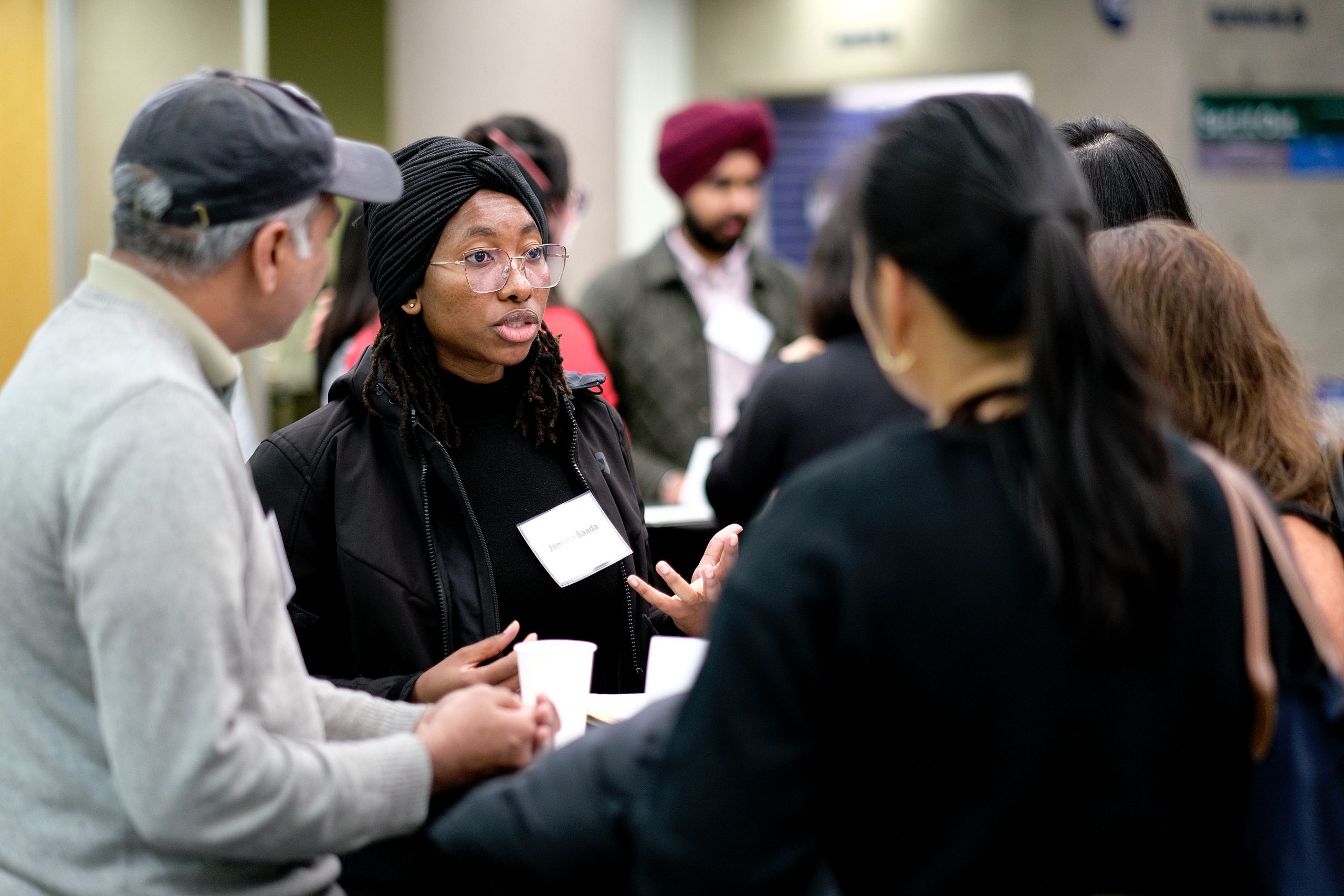

On November 13, 2024, CMS and AMSSA hosted the second CMS-Sector Research Collaborations Day in partnership with UBC Connects.
About the Speakers
- Tsunaxen, Willie Lewis
Tsunaxen, Willie Lewis, is a proud member of the Skwxwú7mesh (Squamish) First Nation with African American heritage, born in North Vancouver and residing on the Capilano Reserve in Squamish Nation territory. A cultural performer with Spakwus Slolem (The Eagle Song Dancers), Willie shares Squamish cultures and traditions and works to remove barriers to employment and education for Indigenous Peoples. He holds a First Nations Tourism Management diploma from Capilano University and has supported management, sales, and customer service for various Squamish Nation businesses. He’s also applied his cultural leadership and community engagement skills to recruit and support Indigenous students at Nicola Valley Institute of Technology and Capilano University. His work includes roles with the Squamish Lil’wat Cultural Centre, Indigenous Tourism BC, Destination BC, and the Squamish Nation Language and Cultural Affairs Department.
- Atlanta-Marinna Grant
Atlanta-Marinna Grant is a Community Engagement Specialist and Decolonial Practitioner who graduated from the Institute of Resources, Environment, and Sustainability at UBC. Her research and professional work have focused on what safe decolonized collaborative spaces between non-Indigenous and Indigenous peoples can look like.
- Dr. Harald Bauder
Dr. Harald Bauder is a Professor in the Department of Geography and the Graduate Program in Immigration and Settlement Studies at Toronto Metropolitan University. His research explores Indigenous-newcomer relations among other topics. He also leads the partnership project, “Urban Sanctuary, Migrant Solidarity and Hospitality in Global Perspective,” which aims to co-develop and share knowledge on policies and practices for supporting vulnerable migrants and refugees in major cities across Africa, Europe, North America, and Latin America.
- Dr. Sandeep Agrawal
Dr. Sandeep Agrawal is a Professor and Associate Dean at the Faculty of Graduate and Postdoctoral Studies at the University of Alberta. Dr. Agrawal’s research interests are diverse, spanning sustainable urban and rural planning, migration, energy transitions, Indigenous issues, and human rights. Among several national and international grants he has received, the most recent one is $98.6M CFREF grant, in which he is the project lead from the University of Alberta. An accomplished author of over one hundred articles, professional reports, and three books, Dr. Agrawal has significantly influenced planning practices, city bylaws, and legislation through a focus on human and Indigenous rights and equity. He has also received the Canadian Institute of Planners’ national academic award for his substantial contributions to planning education and research in Canada.
- Caitlin Chong
Caitlin Chong is a Chinese settler with Canadian citizenship occupying unceded territories of the xʷməθkʷəy̓əm (Musqueam), Skwxwú7mesh (Squamish), and səl̓ilwətaɁɬ (Tsleil-Waututh) Nations, or what is colonially known as "Vancouver." She is a graduate student in the UBC Sociology department, a researcher with Yarrow Intergenerational Society for Justice, and an organizer with Spring Socialist Network. In her research and activism, she attends to the experiences of diasporic Chinese communities through the lenses of racial capitalism and postcolonial theory.
- Dr. Amanda Cheong
Dr. Amanda Cheong is an Assistant Professor in the Department of Sociology at the University of British Columbia. She researches the impacts of documentation and legal status on people’s lives, working with stateless, undocumented, and refugee communities in Southeast Asia and North America. Her work has appeared in venues such as Social Problems, Sociological Theory, International Migration Review, and positions: asia critique. She earned her PhD in Sociology and Social Policy at Princeton University in 2019.
- Dr. Irene Bloemraad
Dr. Irene Bloemraad is a Professor of Sociology and Political Science, the Co-Director of the UBC Centre for Migration Studies, and the holder of the President’s Excellence Chair in Global Migration at UBC. Her research focuses on how immigrants integrate into political communities and the impact of migration on politics and notions of belonging. She also investigates the role of community organizations in amplifying immigrant voices, the evolution of national identities such as multiculturalism, and how public attitudes toward immigrants shift depending on the framing of issues like human rights, citizenship, and national values.
- Dr. Antje Ellermann
Dr. Antje Ellermann is an immigrant settler of German origin and lives as an uninvited guest on the beautiful, shared territories of the xʷməθkʷəy̓əm (Musqueam), Skwxwú7mesh (Squamish), and səl̓ilwətaɁɬ (Tsleil-Waututh), together with her spouse and their teenage daughter. She is a Professor of Political Science and the Co-Director of the UBC Centre for Migration Studies. Her research focuses on the politics of migration and citizenship in liberal democracies. She currently works on projects examining the intersection of migration and citizenship, settler colonialism, and Indigeneity, as well as the comparative work of immigration bureaucracies.
- Javier Ojer
Javier Ojer is an immigrant settler of Basque ethnicity with Spanish, colonial background, among other privileges. As the Engagement Strategist at the UBC Centre for Migration Studies, he focuses on building relationships and initiatives that address the intersections and contradictions of settlement and decolonization. His interests include inquiring about and looking at appropriate roles of settler-colonial individuals and institutions in relation to unceded territories, the land itself, and the experiences of Indigenous Peoples and Nations with ongoing colonialism. He supports CMS’s efforts to create inclusive research spaces that integrate diverse tools and methodologies—such as art and storytelling—as legitimate ways of producing, validating and mobilizing knowledge.
- Katie Crocker
Katie Crocker is the Chief Executive Officer of AMSSA, a British Columbia provincial umbrella association that strengthens over 90 member agencies as well as hundreds of community stakeholder agencies who serve immigrants and newcomers. Katie represents the BC Settlement Sector on the National Settlement and Integration Council, sits on the Executive Committee of the UBC Centre for Migration Studies and is the Co-Chair of Pathways to Prosperity. Along with her background in not-for-profit management and her knowledge of the settlement and integration sector, Katie brings expertise in supporting neurodiverse children and their families as a mother of a child with Autism and the Chair of UNITI’s Board of Directors. In recognition of her achievements, Katie was awarded the King Charles III Coronation Medal in August 2024.
- Dr. Sandra Schinnerl
Dr. Sandra Schinnerl is a Postdoctoral Fellow at the UBC Centre for Migration Studies. Her research interests include the study of migration pathways of newcomers, measuring the impacts of settlement service delivery, and employment and labour force participation of both temporary and permanent residents. She is also a member of the Bridging Divides research team looking at both the barriers and supports available for citizenship acquisition in Canada. Sandra is also a Senior Policy Researcher for Global Affairs Canada in their International Education Division and is interested in the the relationship between education and immigration policy. She has experience working with and linking population datasets and conducting both quantitative and qualitative research.
Watch the recording of the presentations!
We regret to inform you that due to technical issues, the recording of the panel discussion is not available.
Check out some highlights from the event in the photo gallery below! The full collection of photos is available here.
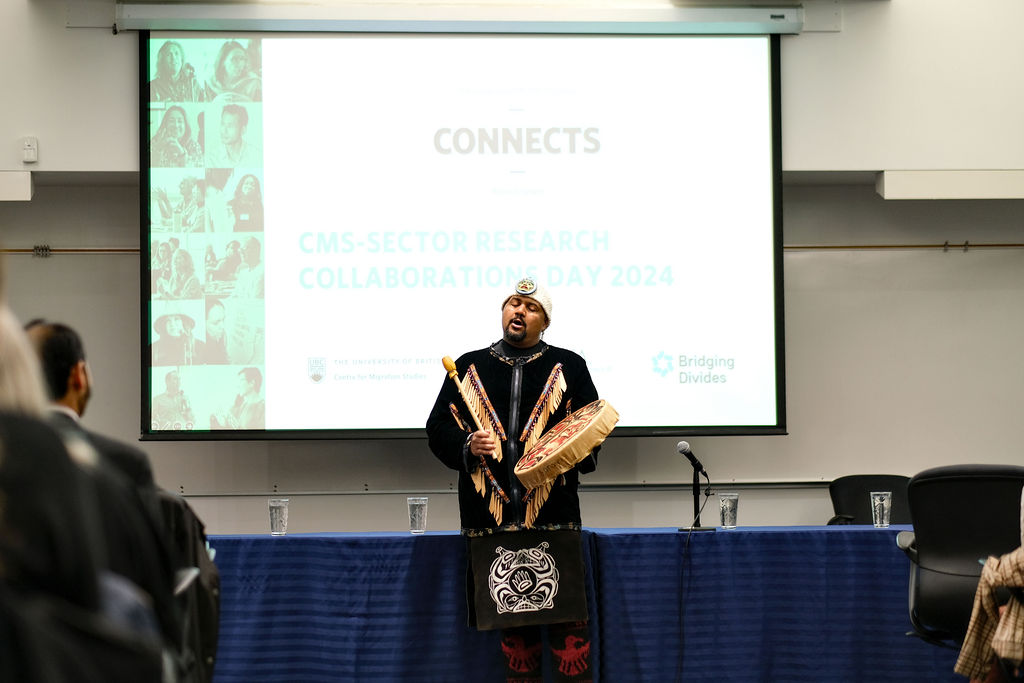
Sḵwx̱wú7mesh (Squamish) Welcome
Tsunaxen, Willie Lewis

Welcome Remarks
Katie Crocker, CEO of AMSSA
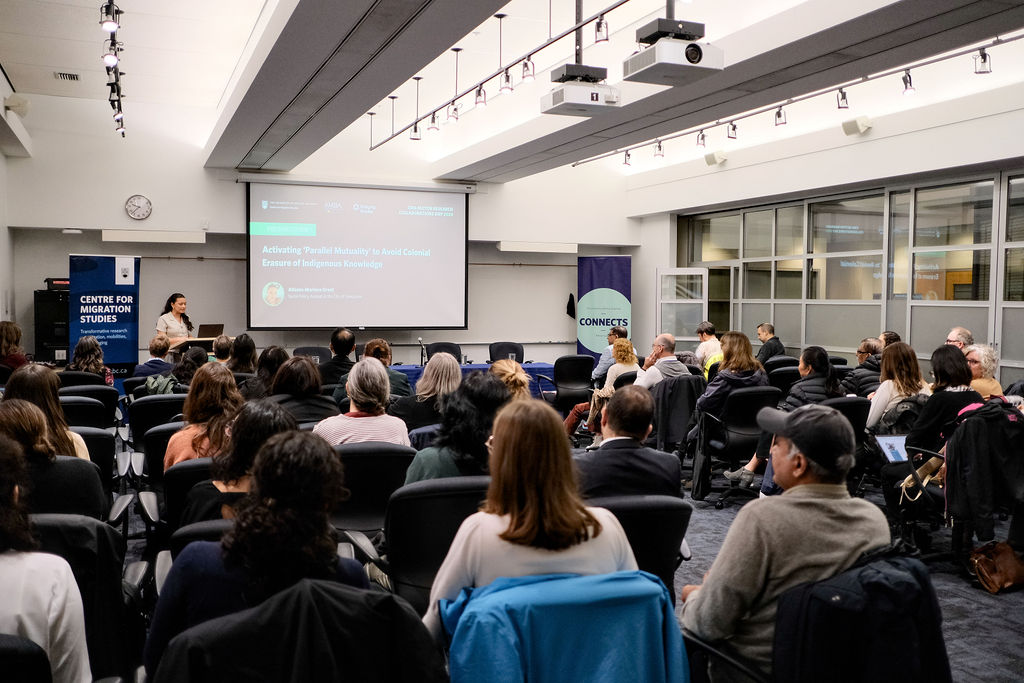
Presentation 1
Atlanta-Marinna Grant
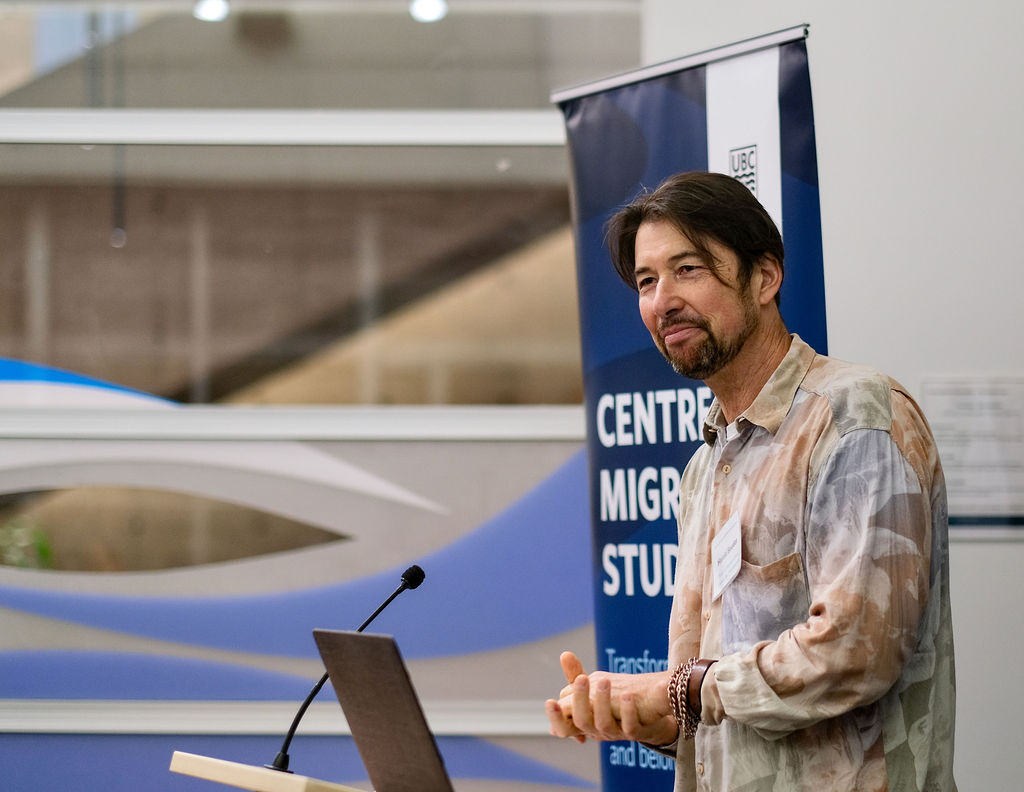
Presentation 2
Dr. Harald Bauder
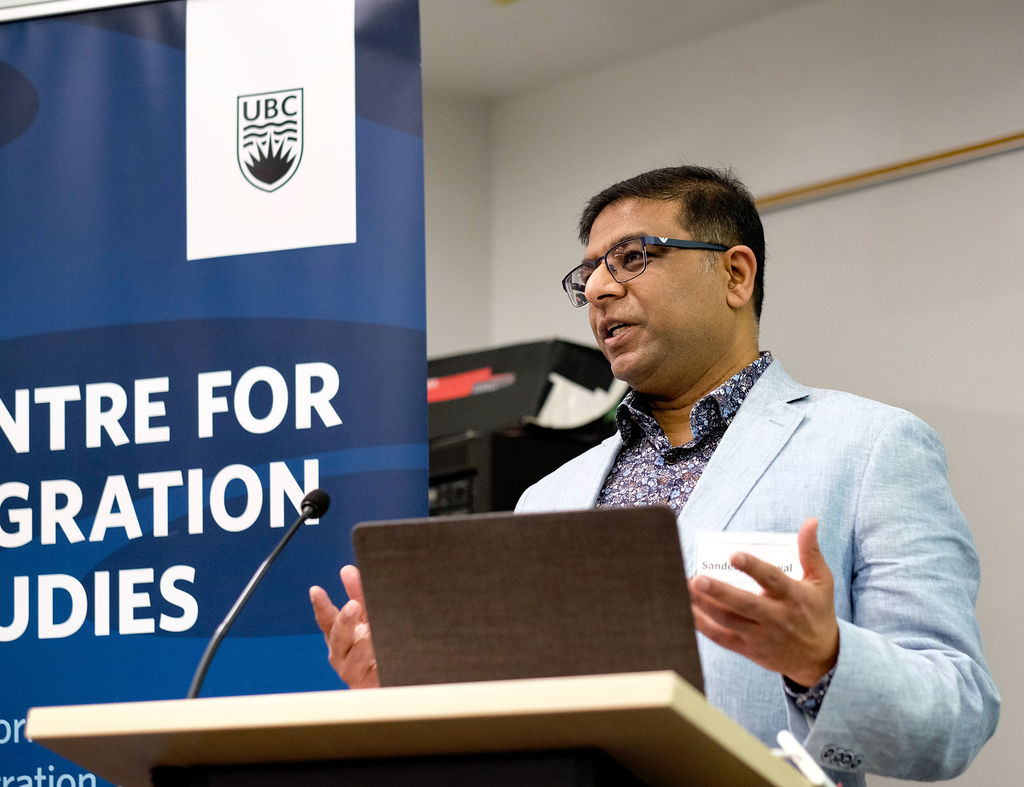
Presentation 3
Dr. Sandeep Agrawal
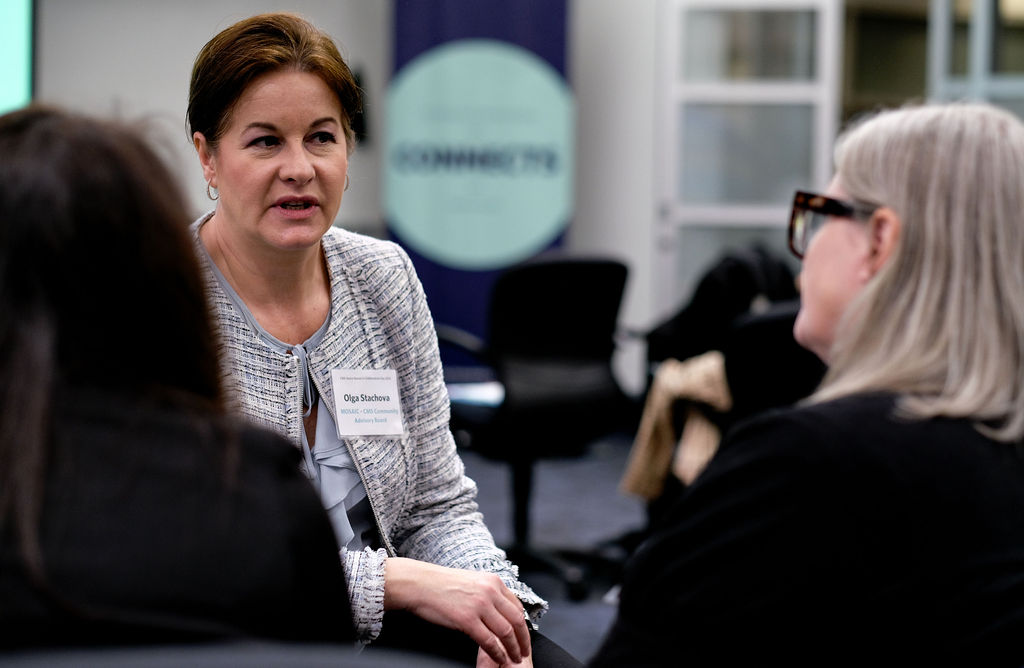
Olga Stachova, CEO of MOSAIC
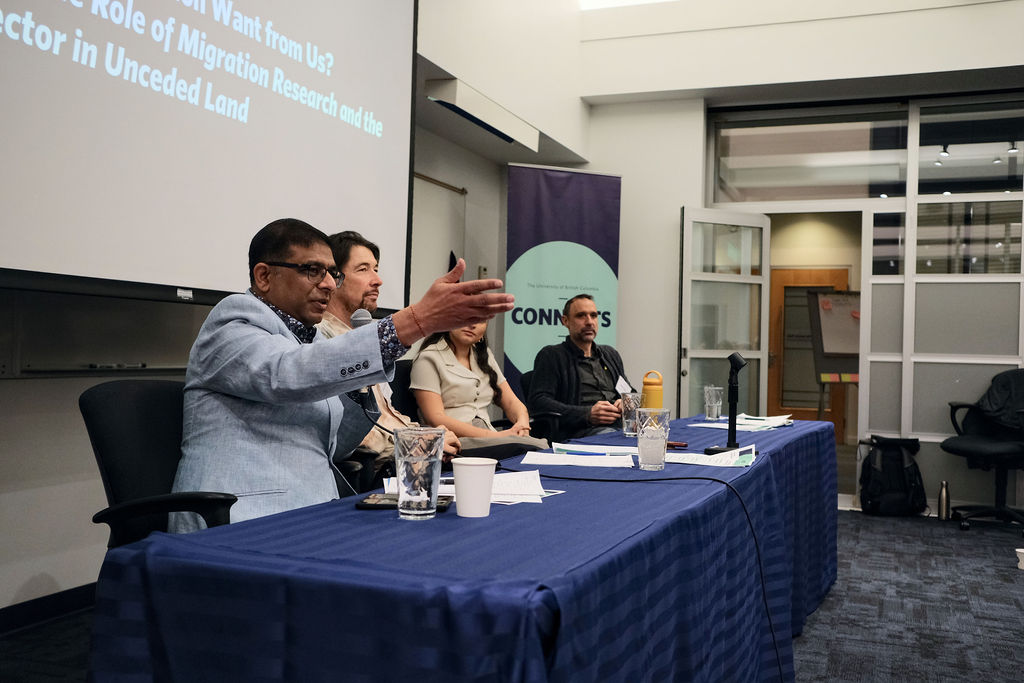
Panel Discussion
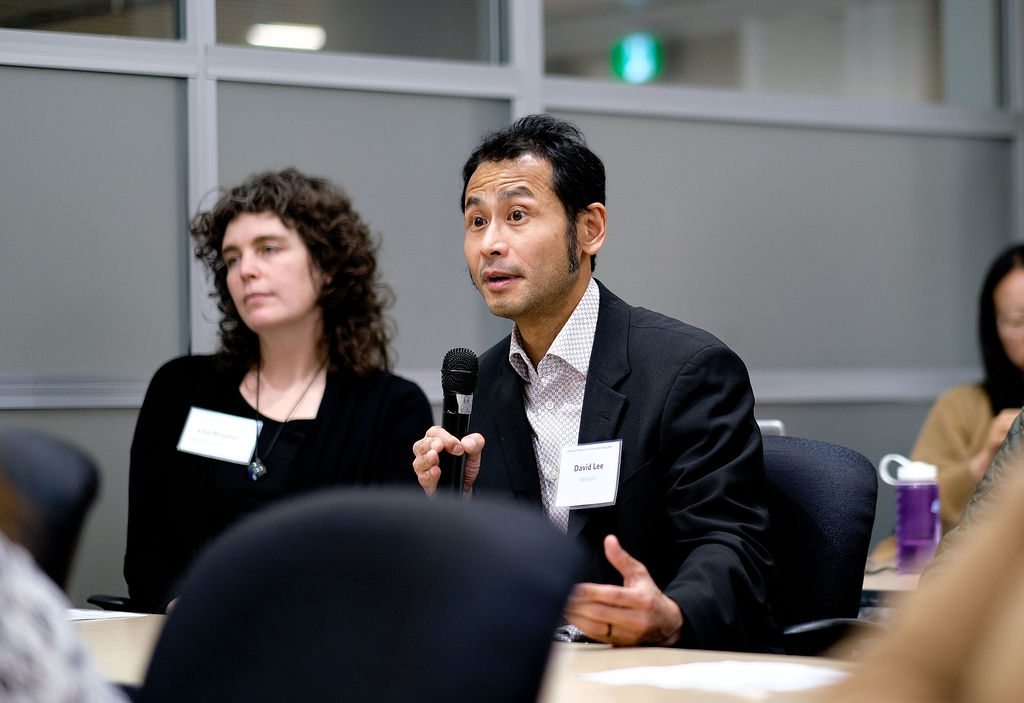
Panel Discussion
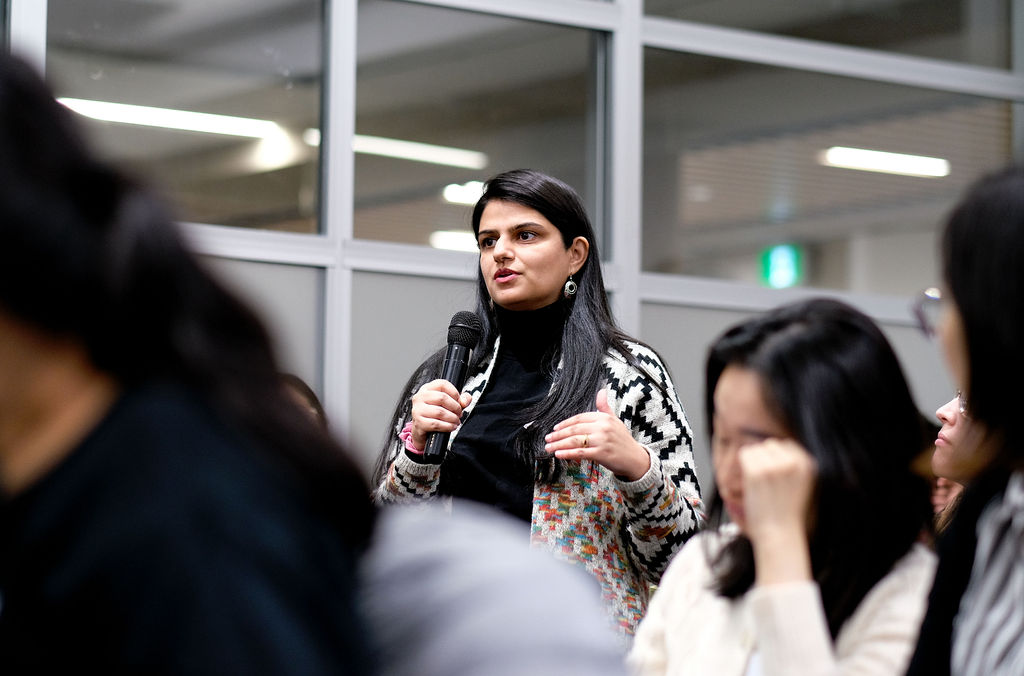
Panel Discussion
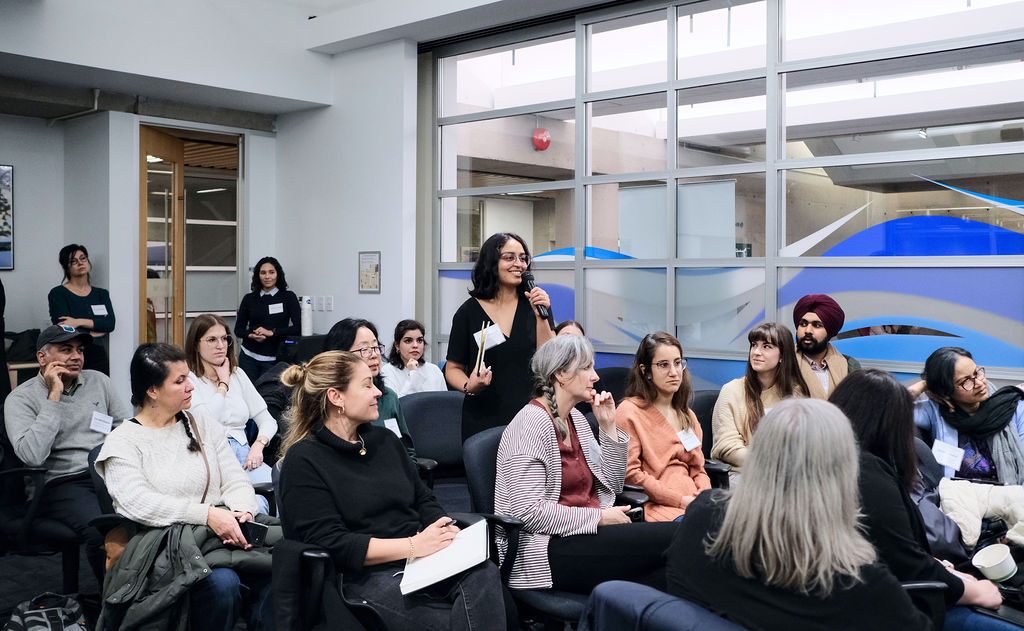
Panel Discussion
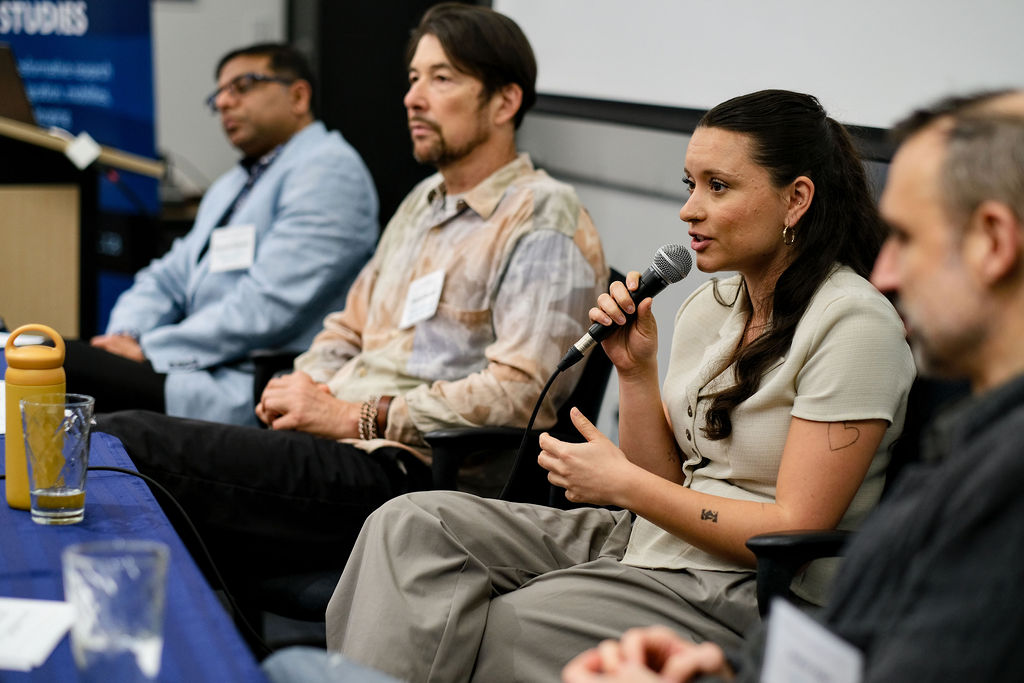
Panel Discussion
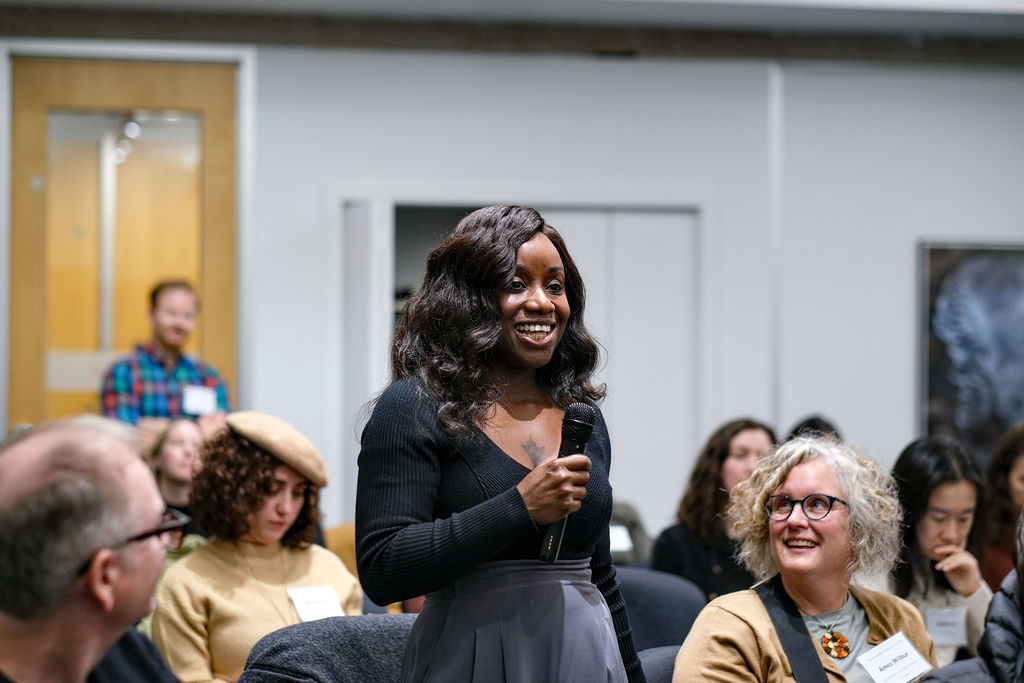
Panel Discussion
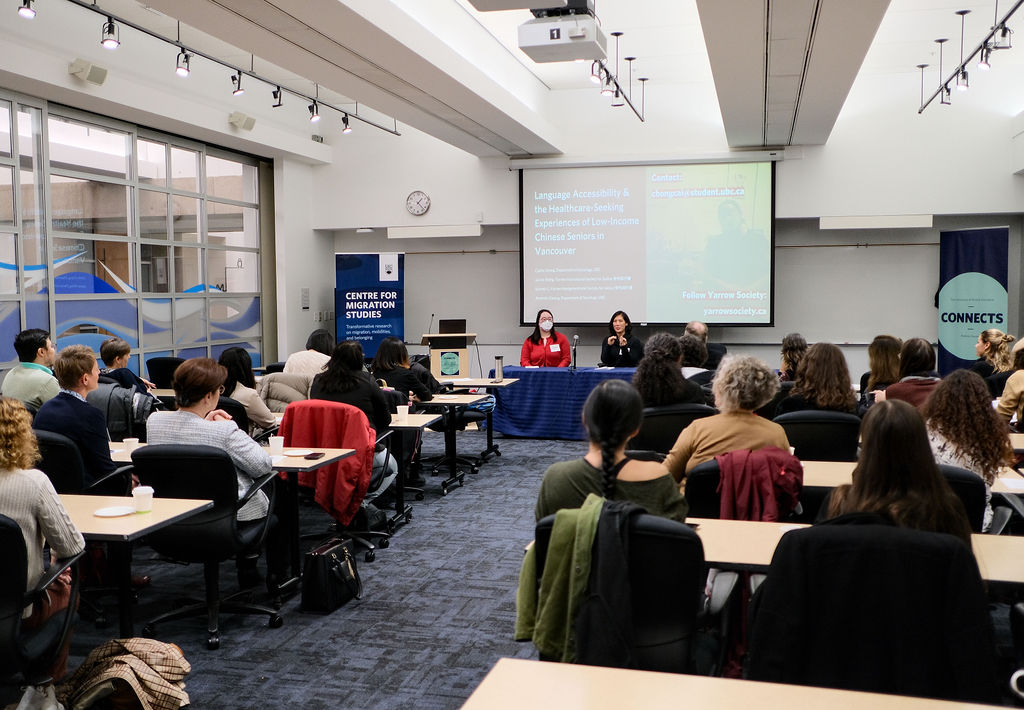
Research Presentation
Caitlin Chong and Dr. Amanda Cheong
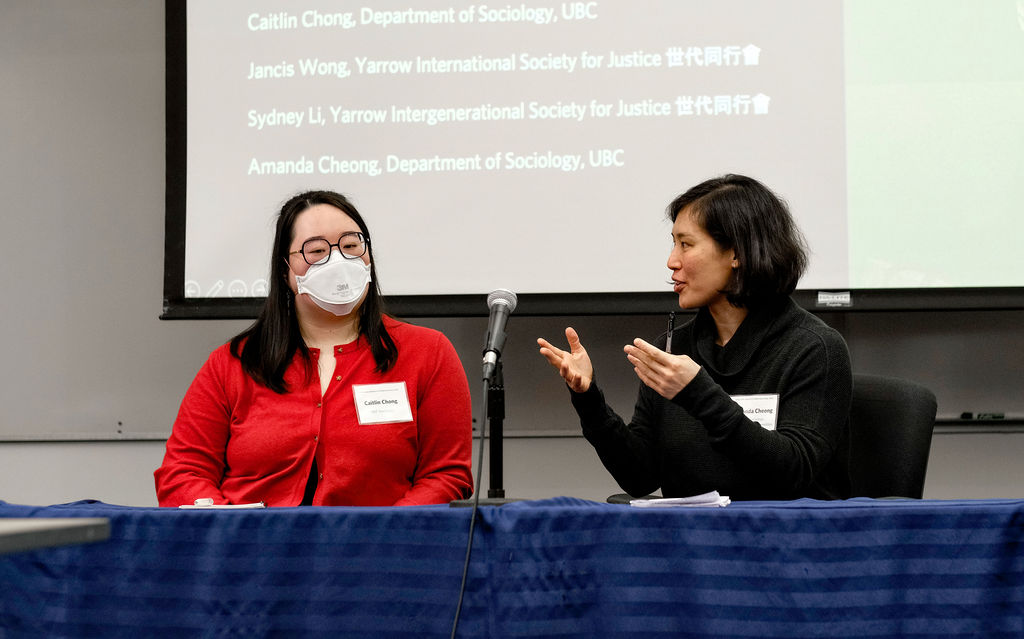
Research Presentation
Caitlin Chong and Dr. Amanda Cheong
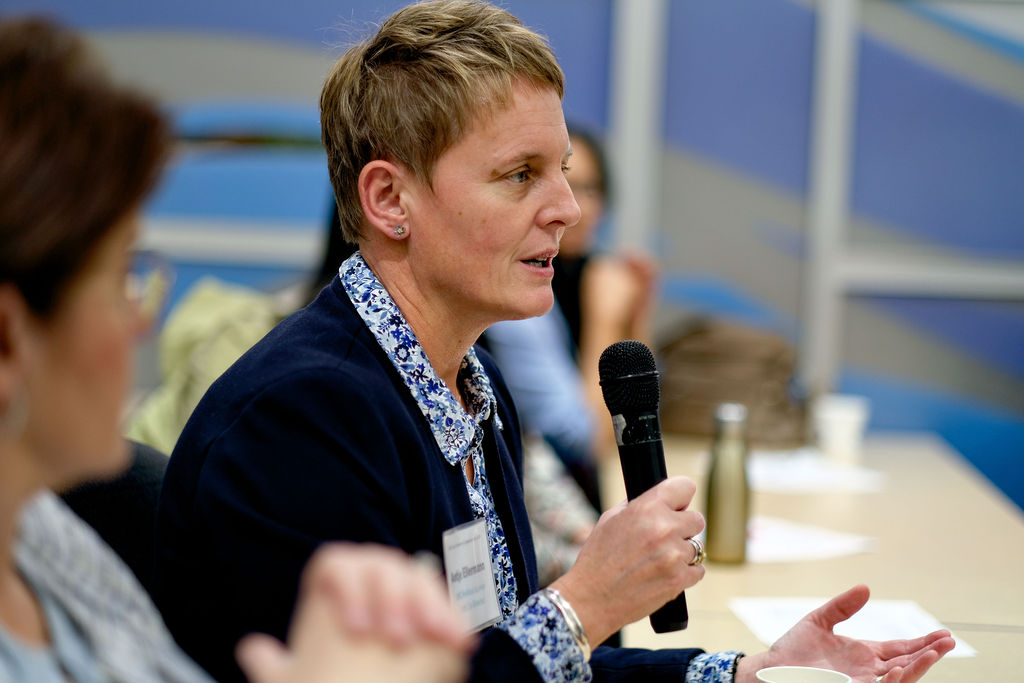
Research Presentation
Dr. Antje Ellermann, CMS Co-Director
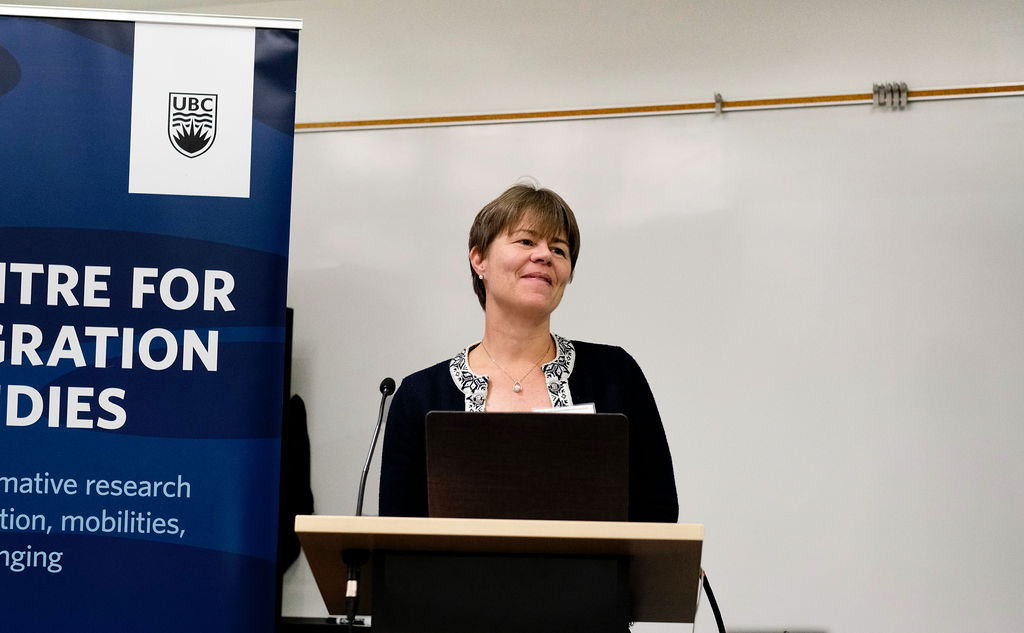
CMS-Sector Collaboration Framework Progress
Dr. Irene Bloemraad, CMS Co-Director
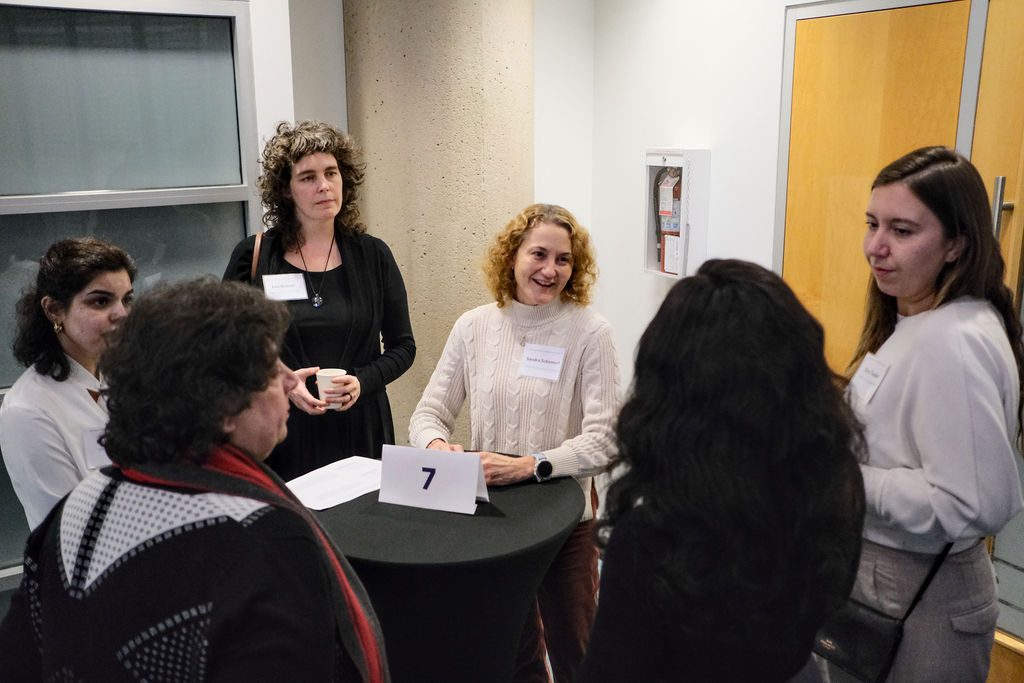
Speed Networking Activity
Dr. Sandra Schinnerl
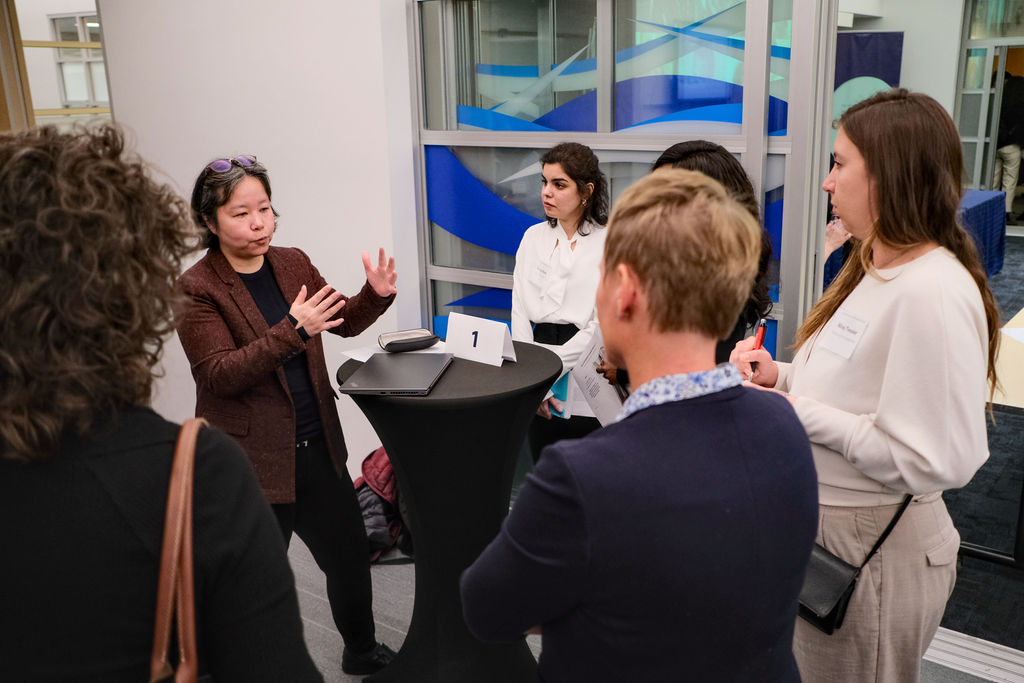
Speed Networking Activity
Dr. Hongxia Shan

CMS-Sector Research Collaborations Day_Featured image
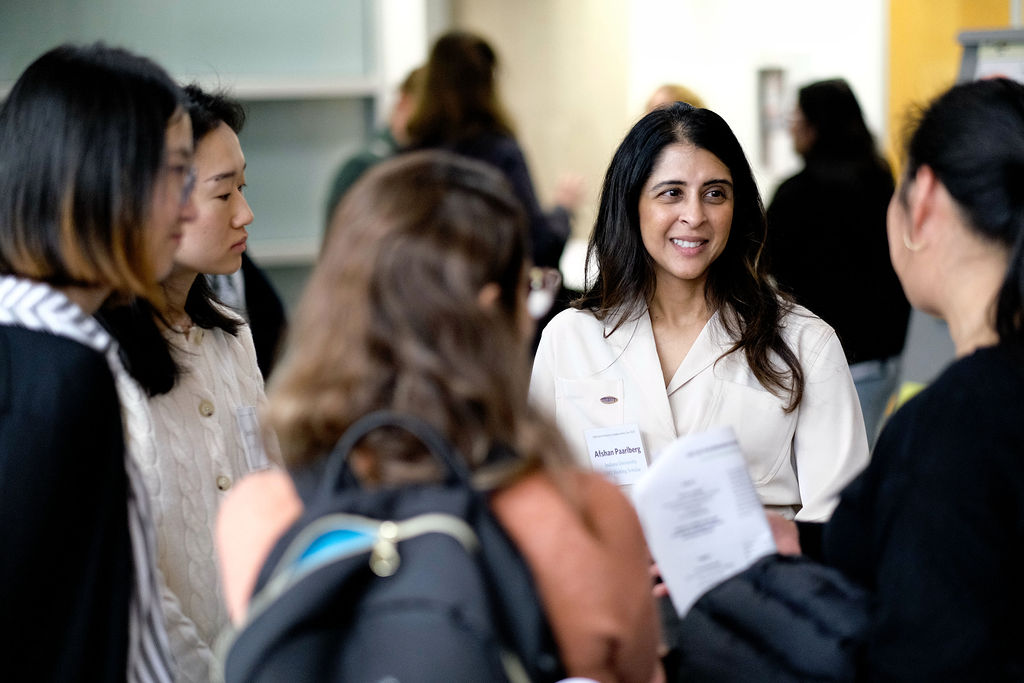
Speed Networking Activity
Afshan Paarlberg


This event was co-sponsored by the Migrant Integration in the Mid-21st Century: Bridging Divides research program.




